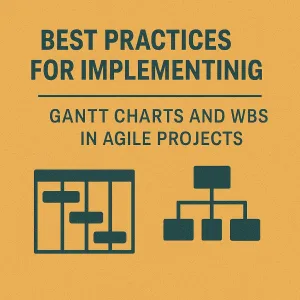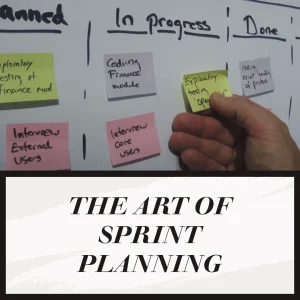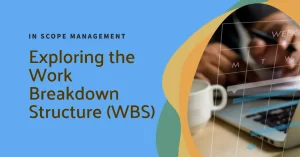Introduction to Cost Tracking in Project Management
Cost tracking is a critical component of project management that involves monitoring and managing the financial resources allocated to a project. It encompasses the processes of recording, analyzing, and reporting on the costs incurred throughout the project lifecycle. Effective cost tracking ensures that project managers can maintain control over budgets, forecast future expenses, and make informed decisions that align with the project’s financial goals.
Definition and Role of Cost Tracking
Cost tracking refers to the systematic process of capturing all costs associated with a project, including direct costs (such as labor and materials) and indirect costs (such as overhead and administrative expenses). This process plays several vital roles in project management:
- Budget Management: By tracking costs, project managers can compare actual expenditures against the budget, allowing for timely adjustments to avoid overruns.
- Resource Allocation: Accurate cost tracking helps in understanding where resources are being utilized, enabling better allocation and optimization of project resources.
- Performance Measurement: It provides a basis for evaluating project performance through metrics such as cost variance and cost performance index, which are essential for assessing whether a project is on track financially.
Significance of Accurate Cost Tracking for Project Success
Accurate cost tracking is paramount for the success of any project. Here are some key reasons why:
- Informed Decision-Making: With precise cost data, project managers can make informed decisions regarding resource allocation, project scope adjustments, and risk management strategies.
- Stakeholder Confidence: Transparent cost tracking fosters trust among stakeholders, as it demonstrates accountability and financial prudence, which are crucial for maintaining stakeholder support.
- Risk Mitigation: By identifying cost overruns early, project managers can implement corrective actions to mitigate risks, ensuring that the project remains within budget and on schedule.
Industry Standards and Regulations Related to Cost Tracking
Several industry standards and regulations govern cost tracking practices. These standards are designed to ensure consistency, accuracy, and compliance across various projects and sectors. Some of the key standards include:
- Project Management Institute (PMI) Standards: PMI provides guidelines and best practices for cost management in its PMBOK® Guide, which outlines processes for estimating, budgeting, and controlling costs.
- International Organization for Standardization (ISO): ISO 21500 offers guidance on project management concepts and processes, including cost management, to enhance project performance and stakeholder satisfaction.
- Government Regulations: In many industries, particularly in government contracting, compliance with regulations such as the Federal Acquisition Regulation (FAR) is essential for cost tracking and reporting.
Understanding these standards and regulations is crucial for compliance officers and project managers, as they provide a framework for effective cost tracking and help ensure that projects meet legal and organizational requirements.
Key Regulations Governing Cost Tracking
Effective cost tracking is essential for ensuring that projects remain within budget and comply with various regulatory frameworks. Compliance Officers and Project Managers must navigate a complex landscape of regulations and standards that govern financial practices. Below is an overview of the primary regulations that impact cost tracking practices.
1. Federal Acquisition Regulation (FAR)
The Federal Acquisition Regulation (FAR) is a key regulation in the United States that governs the acquisition process by which federal agencies procure goods and services. It establishes the rules for cost tracking in government contracts, ensuring transparency and accountability. Key aspects include:
- Cost Principles: FAR outlines specific cost principles that contractors must follow, including allowable and unallowable costs. This ensures that only legitimate expenses are charged to government contracts.
- Cost Accounting Standards (CAS): For certain contracts, FAR requires adherence to CAS, which provides a framework for consistent cost accounting practices. This is crucial for accurate cost tracking and reporting.
- Audits and Compliance: FAR mandates regular audits of contractor financial records, emphasizing the importance of maintaining accurate cost tracking systems to avoid penalties and ensure compliance.
2. Sarbanes-Oxley Act (SOX)
The Sarbanes-Oxley Act (SOX) was enacted in response to corporate scandals and aims to protect investors by improving the accuracy and reliability of corporate disclosures. Its implications for cost tracking include:
- Financial Reporting: SOX requires companies to implement internal controls over financial reporting, which directly affects how costs are tracked and reported. This includes ensuring that all financial data, including project costs, is accurate and complete.
- Accountability: The act holds executives accountable for the accuracy of financial statements, which means that project managers must ensure that cost tracking is meticulous and transparent to avoid legal repercussions.
- Documentation and Record-Keeping: SOX emphasizes the need for proper documentation of financial transactions, which is critical for effective cost tracking and compliance during audits.
3. Generally Accepted Accounting Principles (GAAP)
Generally Accepted Accounting Principles (GAAP) are a set of accounting standards used in the United States that provide guidelines for financial reporting. Their relevance to cost tracking includes:
- Consistency and Comparability: GAAP ensures that financial statements are consistent and comparable across different organizations, which is vital for stakeholders reviewing project costs.
- Accrual Accounting: GAAP promotes the use of accrual accounting, which requires that costs be recorded when incurred, not when paid. This principle is essential for accurate cost tracking throughout the project lifecycle.
- Detailed Reporting: GAAP requires detailed reporting of expenses, which aids project managers in tracking costs effectively and making informed financial decisions.
4. International Financial Reporting Standards (IFRS)
International Financial Reporting Standards (IFRS) are designed to bring transparency, accountability, and efficiency to financial markets around the world. For project management, IFRS impacts cost tracking in several ways:
- Global Consistency: IFRS provides a common accounting language, which is particularly beneficial for multinational projects. This consistency aids in the accurate tracking of costs across different jurisdictions.
- Revenue Recognition: IFRS has specific guidelines on revenue recognition that can affect how project costs are tracked and reported, particularly in long-term contracts.
- Enhanced Disclosure Requirements: IFRS mandates comprehensive disclosures regarding financial performance, which includes detailed information on project costs, thereby enhancing transparency for stakeholders.
Industry Standards for Cost Tracking
Effective cost tracking is crucial for ensuring that projects are completed within budget and on schedule. Compliance officers and project managers must navigate a landscape of established standards and regulations that guide cost tracking methodologies. This section provides an overview of key industry standards, including Earned Value Management (EVM) and ISO 21500, as well as best practices and frameworks utilized across various sectors.
Earned Value Management (EVM)
Earned Value Management (EVM) is a widely recognized project management technique that integrates scope, schedule, and cost to assess project performance and progress. Key aspects of EVM include:
- Performance Measurement: EVM provides a quantitative measure of project performance by comparing the planned progress (Planned Value) with the actual progress (Earned Value) and the actual costs incurred (Actual Cost). This allows project managers to identify variances and forecast future performance.
- Relevance to Cost Tracking: EVM is essential for cost tracking as it enables project managers to make informed decisions based on real-time data. By using EVM, organizations can better manage budgets, allocate resources effectively, and mitigate risks associated with cost overruns.
ISO 21500 Standard
The ISO 21500 standard offers guidelines for project management, emphasizing the importance of effective cost management. Key implications for cost tracking include:
- Framework for Best Practices: ISO 21500 provides a structured approach to project management, outlining processes and practices that enhance project success. It encourages organizations to adopt standardized methods for cost estimation, budgeting, and tracking.
- Integration with Other Standards: This standard aligns with other international standards, promoting consistency in project management practices across different industries. By adhering to ISO 21500, organizations can ensure compliance with global best practices in cost management.
Best Practices and Frameworks
Different industries have developed specific best practices and frameworks for cost tracking that align with their unique requirements. Some notable examples include:
- Construction Industry: The use of Building Information Modeling (BIM) allows for detailed cost estimation and tracking throughout the project lifecycle. This technology enhances transparency and accuracy in cost management.
- IT and Software Development: Agile methodologies, such as Scrum, incorporate iterative cost tracking through regular sprint reviews and retrospectives. This approach allows teams to adjust budgets and resources dynamically based on project needs.
- Manufacturing Sector: Lean project management principles focus on minimizing waste and optimizing resource allocation, which directly impacts cost tracking. Techniques such as Value Stream Mapping help identify cost drivers and improve efficiency.
Best Practices for Effective Cost Tracking
Effective cost tracking is essential for successful project management, particularly for compliance officers and project managers who must adhere to industry standards and regulations. Here are some actionable strategies to enhance cost tracking within your projects:
Implement Consistent Cost Tracking Methodologies Across Projects:
- Establish a standardized approach to cost tracking that can be applied across all projects. This consistency helps in comparing costs, identifying trends, and ensuring that all team members are on the same page regarding financial management.
- Utilize frameworks such as Earned Value Management (EVM) to measure project performance and progress in relation to cost and schedule, providing a clear picture of project health.
Utilize Modern Tools and Software for Accurate Cost Tracking and Reporting:
- Leverage advanced project management software that offers integrated cost tracking features. Tools like Microsoft Project, Asana, or specialized financial management software can automate data collection and reporting, reducing the risk of human error.
- Ensure that the chosen tools allow for real-time tracking and reporting, enabling project managers to make informed decisions quickly and adjust budgets as necessary.
Regularly Review and Update Cost Tracking Processes to Comply with Changing Regulations:
- Stay informed about industry regulations and standards that affect cost tracking, such as the Project Management Institute (PMI) guidelines or specific financial compliance requirements relevant to your sector.
- Schedule periodic reviews of your cost tracking processes to identify areas for improvement and ensure compliance with any new regulations. This proactive approach not only mitigates risks but also enhances the overall efficiency of project management practices.
By implementing these best practices, project managers and compliance officers can significantly improve their cost tracking capabilities, leading to better financial oversight and project success.
Challenges in Cost Tracking Compliance
Cost tracking is a critical component of project management, ensuring that financial resources are allocated efficiently and that projects remain within budget. However, compliance with industry standards for cost tracking presents several challenges for project managers and compliance officers. Below are some of the key issues that can hinder effective cost tracking compliance:
1. Data Accuracy and Integrity
- Inconsistent Data Entry: One of the primary challenges in cost tracking is ensuring that all financial data is entered consistently and accurately. Errors in data entry can lead to significant discrepancies in budget reports, making it difficult to assess the true financial status of a project.
- Integration of Systems: Many organizations use multiple software systems for project management, accounting, and reporting. Ensuring that these systems communicate effectively and that data is synchronized can be a complex task, often leading to data integrity issues.
- Real-Time Tracking: The need for real-time data tracking can complicate compliance efforts. Delays in data updates can result in outdated information being used for decision-making, which can adversely affect project outcomes.
2. Training Staff on Compliance and Cost Tracking Standards
- Knowledge Gaps: Compliance officers and project managers often face challenges in ensuring that all team members are adequately trained on cost tracking standards and regulations. Knowledge gaps can lead to non-compliance and financial mismanagement.
- Resistance to Change: Implementing new cost tracking systems or standards may meet resistance from staff who are accustomed to existing processes. Overcoming this resistance requires effective change management strategies and ongoing training initiatives.
- Resource Allocation for Training: Allocating sufficient time and resources for training can be a challenge, especially in fast-paced project environments. Without proper training, staff may struggle to adhere to compliance requirements, leading to potential violations.
3. Impact of Project Scope Changes
- Scope Creep: Changes in project scope, often referred to as “scope creep,” can significantly impact cost tracking efforts. When project requirements evolve, it can lead to unanticipated costs that are difficult to track and manage.
- Budget Revisions: Frequent changes in project scope necessitate regular budget revisions, which can complicate compliance with cost tracking standards. Ensuring that all changes are documented and reflected in financial reports is essential but can be challenging to manage effectively.
- Communication Gaps: Effective communication between project stakeholders is crucial when scope changes occur. Miscommunication can lead to misunderstandings about budget implications, resulting in compliance issues and financial discrepancies.
The Future of Cost Tracking in Project Management
Cost tracking remains a critical component that ensures projects are completed within budget and aligned with organizational goals. The future of cost tracking is poised to be shaped by several emerging trends, particularly the integration of advanced technologies, evolving regulations, and a growing emphasis on sustainability and ethical practices.
Role of Technology in Cost Tracking
Artificial Intelligence and Machine Learning:
- AI and machine learning are set to revolutionize cost tracking by automating data collection and analysis. These technologies can identify patterns and anomalies in spending, enabling project managers to make informed decisions quickly.
- Predictive analytics powered by AI can forecast future costs based on historical data, allowing for more accurate budgeting and resource allocation. This proactive approach can significantly reduce the risk of budget overruns.
Real-Time Data Monitoring:
- The integration of IoT (Internet of Things) devices and cloud-based solutions will facilitate real-time tracking of project expenses. This immediacy allows project managers to respond swiftly to financial discrepancies and adjust project plans accordingly.
- Enhanced visualization tools will provide stakeholders with intuitive dashboards that display cost data in a user-friendly format, improving transparency and communication among team members.
Evolving Regulations and Standards
- Adapting to Industry Needs:
- As industries face rapid changes due to technological advancements and market dynamics, regulations governing cost tracking are likely to evolve. Compliance officers and project managers must stay informed about updates to standards such as the Project Management Institute (PMI) guidelines and International Organization for Standardization (ISO) standards.
- Future regulations may emphasize the need for more rigorous documentation and reporting practices, ensuring that organizations maintain accountability and transparency in their financial dealings.
- Integration of Agile Methodologies:
- The shift towards agile project management practices may influence cost tracking standards. Agile emphasizes flexibility and iterative progress, which could lead to the development of new metrics and reporting frameworks that better align with these methodologies.
Importance of Sustainability and Ethical Considerations
Sustainable Cost Tracking:
- As organizations increasingly prioritize sustainability, cost tracking will need to incorporate environmental and social governance (ESG) factors. This includes assessing the financial implications of sustainable practices and ensuring that projects align with broader corporate social responsibility goals.
- Project managers may be required to track not only financial costs but also the environmental impact of their projects, leading to a more holistic approach to cost management.
Ethical Financial Practices:
- The future of cost tracking will also be influenced by a heightened focus on ethical considerations. Organizations will need to ensure that their cost tracking practices are transparent and fair, avoiding practices that could lead to financial mismanagement or fraud.
- Compliance officers will play a crucial role in establishing ethical guidelines for cost tracking, ensuring that all financial practices adhere to legal and moral standards.
Conclusion
Effective cost tracking is not merely a best practice; it is a critical component that ensures projects are completed within budget and in compliance with industry standards. Understanding and implementing these standards is essential for several reasons:
- Significance of Industry Standards: Adhering to established regulations and standards for cost tracking helps organizations maintain financial integrity and accountability. It ensures that all financial activities are transparent and traceable, which is vital for both internal audits and external compliance requirements. By aligning with these standards, project managers can mitigate risks associated with financial mismanagement and enhance the overall success of their projects.
- Ongoing Education and Adaptation: The landscape of project management is continually evolving, influenced by new regulations, technologies, and methodologies. It is crucial for project managers and compliance officers to engage in ongoing education to stay abreast of these changes. This proactive approach not only enhances their skill sets but also ensures that their organizations remain compliant with the latest industry standards, thereby avoiding potential penalties and fostering a culture of continuous improvement.
- Collaboration Between Project Managers and Compliance Officers: Effective cost tracking requires a collaborative effort between project managers and compliance officers. By working together, these professionals can ensure that cost tracking processes are not only efficient but also compliant with relevant regulations. This partnership fosters a shared understanding of financial objectives and compliance requirements, ultimately leading to more successful project outcomes.
In summary, the importance of adhering to industry standards for cost tracking cannot be overstated. By recognizing the significance of these standards, committing to ongoing education, and fostering collaboration, organizations can enhance their project management practices and achieve greater financial success.
Find out more about Shaun Stoltz https://www.shaunstoltz.com/about/.
This post was written by an AI and reviewed/edited by a human.


